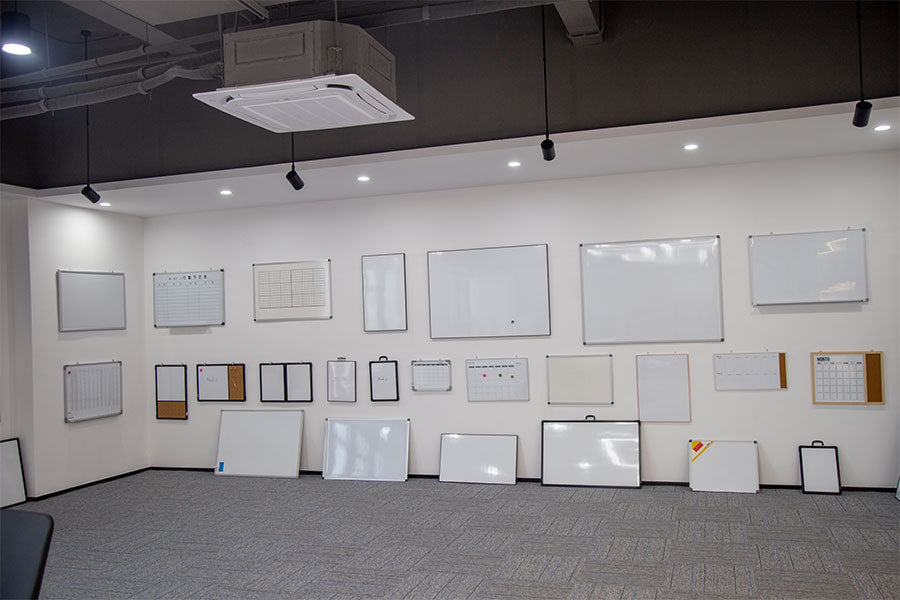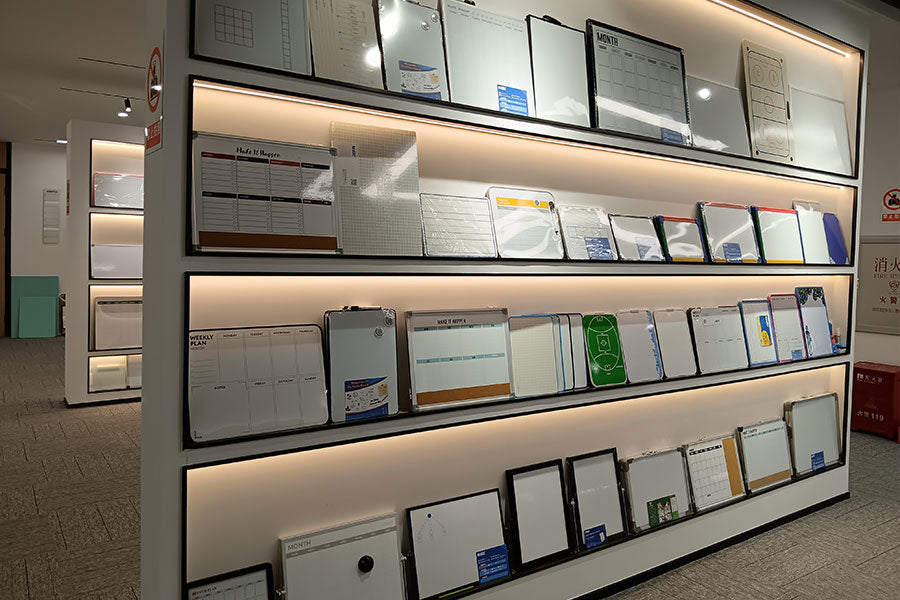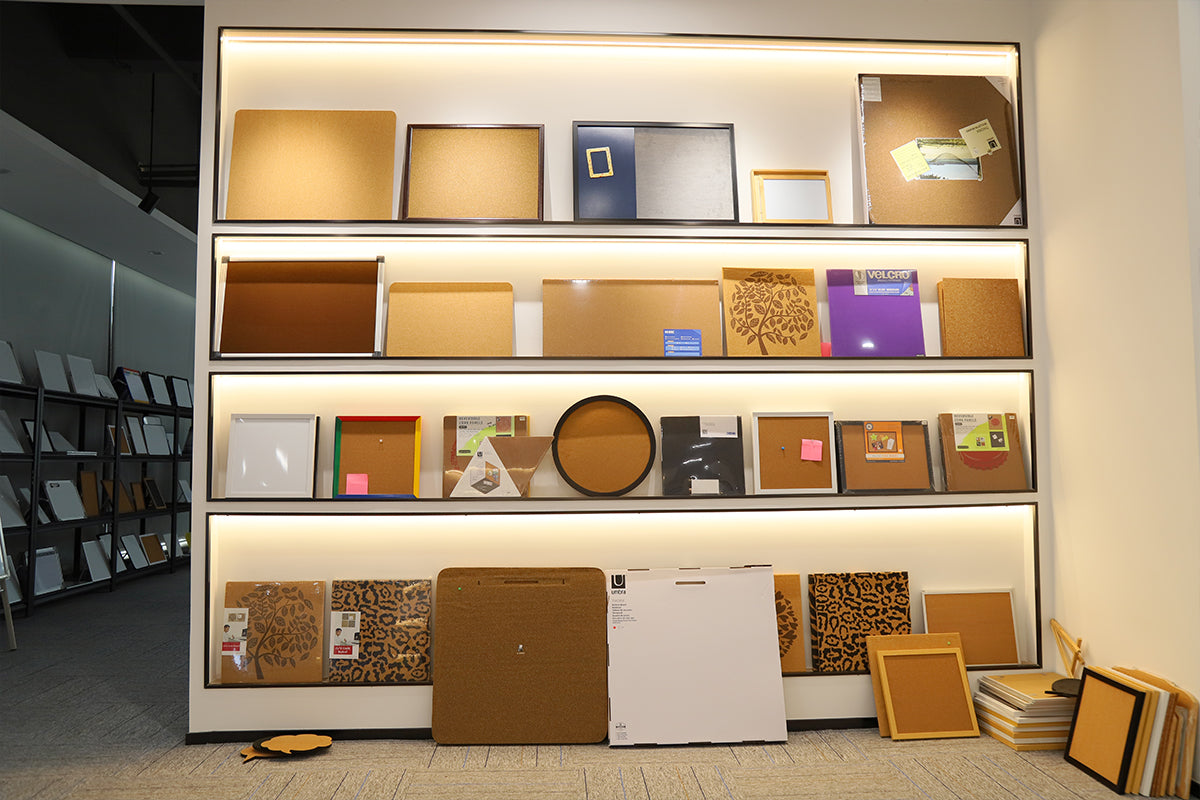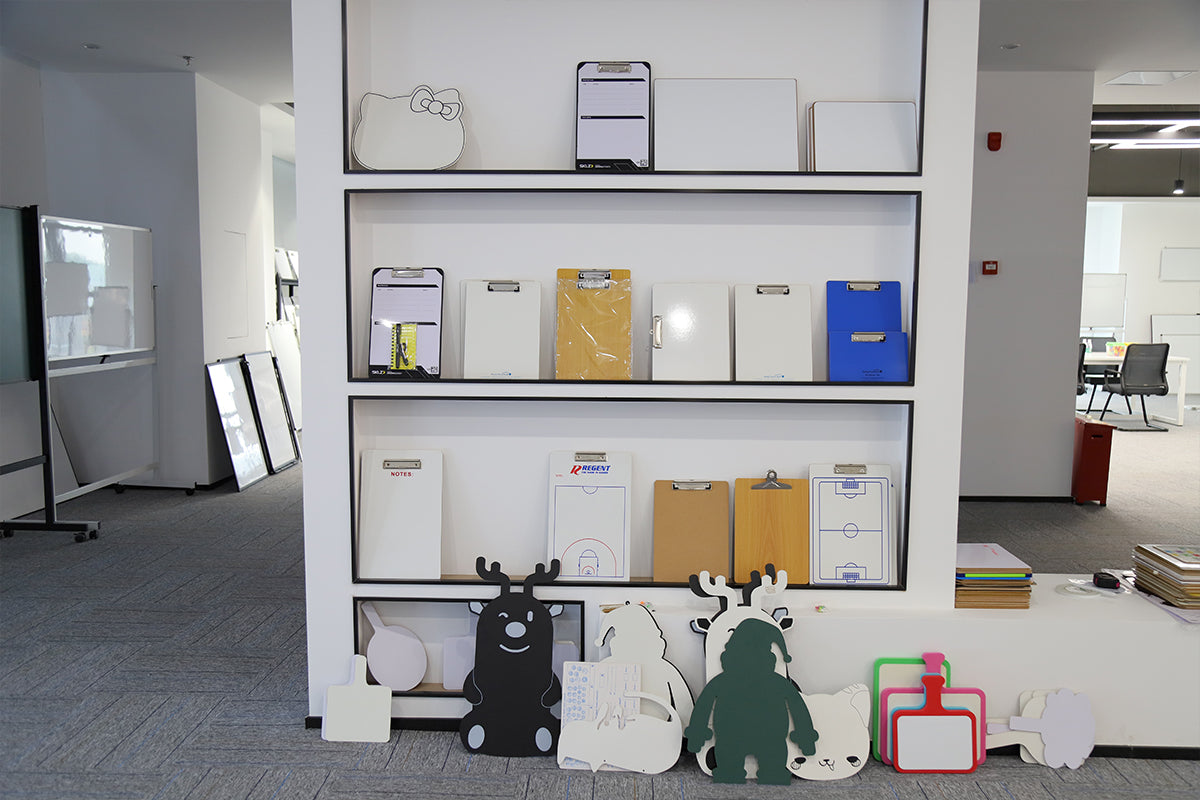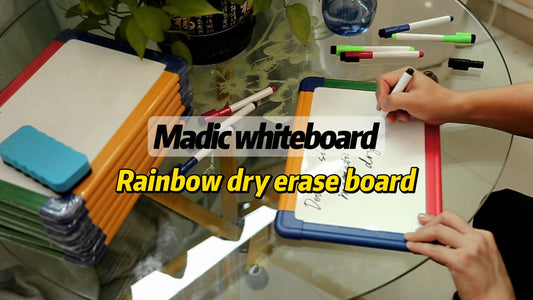Why can't I use an oily marker to write on a whiteboard?
Using an oily marker, such as a permanent marker or a grease pencil, on a whiteboard is not recommended for several reasons:
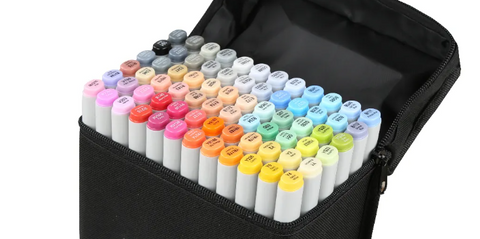
-
Difficulty in Erasing: Oily markers are designed to be permanent and have ink formulations that are resistant to easy removal. Therefore, when used on a whiteboard, the ink will not easily erase with a dry eraser or eraser spray, leaving behind residual marks or smudges.
-
Risk of Staining: Oily markers can cause staining on the whiteboard surface. The ink tends to penetrate and seep into the microscopic pores of the whiteboard material, making it challenging or even impossible to completely remove the ink stains. This can result in permanent marks or discoloration on the whiteboard.
-
Potential Damage to the Surface: The solvents and chemicals present in oily marker ink can be abrasive and may damage the smooth surface of the whiteboard over time. This can lead to a decrease in erasability and overall usability of the whiteboard.
-
Incompatibility with Dry Erase Surface: Whiteboards have a specially formulated coating that allows for easy erasing of dry erase markers. Oily markers do not interact well with this coating and may cause smearing or be difficult to write with smoothly.
To avoid these issues, it is recommended to use dry erase markers specifically designed for whiteboards. Dry erase markers have ink that is formulated with solvents that evaporate quickly, making them easily erasable and compatible with the whiteboard surface.

